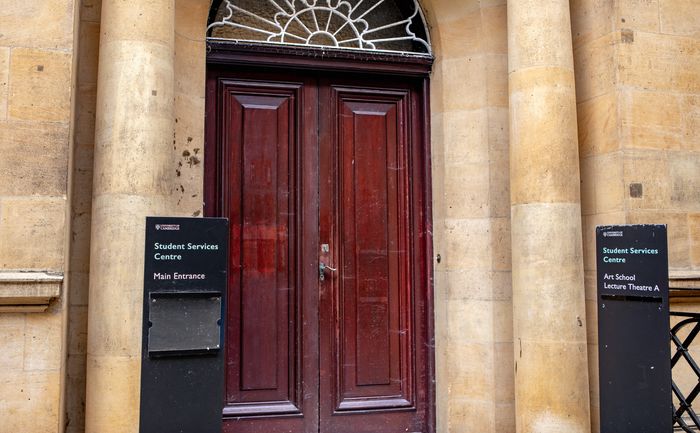Poorest students are £1,125 worse off than in 2021, think tank finds
The government ‘has made a choice not to reverse the substantial cuts,’ according to the IFS

This year, the poorest students in England will receive £1,125 less in maintenance support than they would have in 2021, according to a report by the Institute for Fiscal Studies (IFS), published this week (08/01).
This is because, while the previous government increased maintenance loans in line with expected inflation, they did not top up loans when inflation turned out to be higher than forecast. This caused a real-terms reduction in the value of maintenance loans, which has not been addressed, with the IFS saying: “The current government has made a choice not to reverse the substantial cuts.”
This has been compounded by the freeze in the lower parental income threshold used to determine whether students are eligible for the maximum maintenance loan. Since the 2008/09 academic year, this has been frozen at £25,000, despite nominal earnings rising by nearly 60% since then. As a result, fewer students have qualified for the maximum maintenance loan each year.
The government is yet to announce whether it will finally lift the lower parental income threshold. The report says: “If the long-running freeze in the parental earnings thresholds is maintained, many students will see their entitlements fall in real terms next year.”
There has been speculation that the government may offer students a more generous funding package by bringing back maintenance grants, with a Whitehall source telling The Times: “We need to look at maintenance grants to help those who can least afford [university].”
However, changes to the government’s spending rules announced alongside the autumn budget make the reintroduction of maintenance grants less attractive to the government, according to the IFS.
The think tank explains that loans count as capital spending, whereas grants count as day-to-day spending. In practice, this means that while grants are subject to the Chancellor’s strict spending rules, the rules governing loans to students are less tight, because they are treated as long-term investments.
According to the report, this increases the “relative appeal” to the government of funding higher education through loans to students, rather than through direct grants.
The IFS report comes after the government announced that the tuition fee cap for undergraduate students will increase from £9,250 to £9,535, effectively using an increase in student loans to increase funding for universities.
The aim of this increase is to support higher education providers who have encountered financial difficulties in recent years. The report claims that “many institutions are now reported to be cutting costs, seeking to make redundancies, or closing whole courses.”
As student tuition fees have been unfrozen for the first time since 2017, when the cap was raised from £9,000 to £9,250, the amount of student borrowing is set to increase. This increase in higher cash-terms loans would lead to an expected quarter of additional loans being written off by the taxpayer, the IFS expects.
Meanwhile, yesterday (09/01) a Higher Education Policy Institute (HEPI) poll showed that increases in maintenance support made the recently announced increase in tuition fees more palatable. The snap polling of around 1,100 students revealed 68% opposed the cap increase, 55% strongly. Only 20% of students asked actually supported the increase.
After announcing the simultaneous 3.1% maintenance loan increase to students, however, these figures decreased, with 31% thinking the overall package was “mostly” or “entirely” a bad thing, and 32% of students thinking positively of the changes.
Yet with the IFS report claiming maintenance grants are less attractive to the new government, Labour’s spending rules move it one step away from balancing out future tuition fee rises with the improvement in maintenance support which makes such increases palatable.
Whether there will be future tuition fee rises is not yet known. The government’s refusal to lay out exact plans for fee caps and government spending on higher education leaves a lot of uncertainty for students.
The IFS report said: “If the government knows what it plans to do on the fee cap, it should say so.”
Excluding the changes to spending rules which make loans a more attractive way of financing higher education, the Labour government’s plan for higher education largely echoes its predecessors, the report finds.
The IFS concludes that “university finances will remain a headache for the new government at the spending review in summer 2025 and as it sets future tuition fee caps.”
Want to share your thoughts on this article? Send us a letter to letters@varsity.co.uk or by using this form.
 Arts / Plays and playing truant: Stephen Fry’s Cambridge25 April 2025
Arts / Plays and playing truant: Stephen Fry’s Cambridge25 April 2025 News / Candidates clash over Chancellorship25 April 2025
News / Candidates clash over Chancellorship25 April 2025 Music / The pipes are calling: the life of a Cambridge Organ Scholar25 April 2025
Music / The pipes are calling: the life of a Cambridge Organ Scholar25 April 2025 Comment / Cambridge builds up the housing crisis25 April 2025
Comment / Cambridge builds up the housing crisis25 April 2025 Comment / Pick an exam format and stick to it25 April 2025
Comment / Pick an exam format and stick to it25 April 2025






